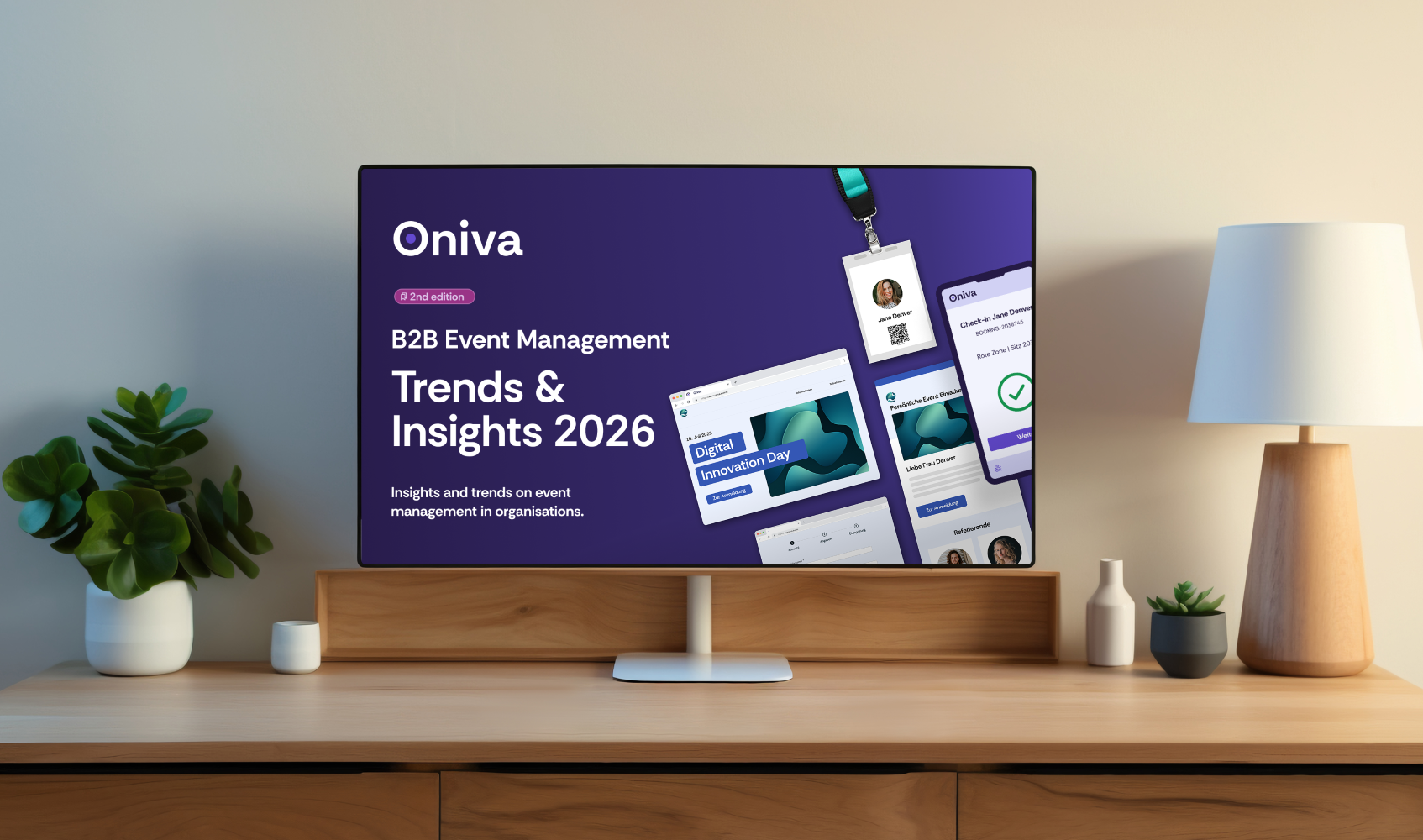Why are event tools free in the first place?
Milton Friedman’s famous quote sums it up well: “There’s no such thing as a free lunch.” Even free event tools need to be financed – often through indirect revenue models:
- Freemium model: Basic features are free, but upgrades or higher usage limits incur costs. The free entry point is intended to generate interest and tie users to the platform.
- Data-based business models: Some providers fund their service by collecting and analysing user data, which may be used for advertising or shared with third parties – often without full transparency.
- Advertising and third-party content: Free tools may display ads or allow third-party content within their interface – which can disrupt the event experience.
These models can become problematic in professional settings where data protection, reliability, and brand image matter.
Examples of free event tools
Here are a few well-known tools that offer a free version:
- Eventbrite – Ticketing and participant registration for small, public events with limited customisation options.
- Slido – Interactive Q&A, live polls and quizzes, commonly used in webinars and conferences.
- Walls.io – Social media walls for displaying live posts during events.
These tools can be suitable for small, non-critical events, but caution is advised when handling complex or data-sensitive scenarios.
Advantages of free event tools
Free event tools have their place and offer certain benefits:
- Quick deployment: Ready to use without lengthy implementation.
- Cost efficiency: No direct licence fees for basic functions.
- User-friendly: Often intuitive and easy to use without training.
- Online support: Help pages and FAQs are usually available, though no personal support is included.
Key drawbacks and risks
Despite the advantages, the following risks should be carefully considered:
1. Unclear data protection policies
Be sure to review how your participants' personal data is handled, stored, and possibly shared. There is a risk of unauthorised access or third-party usage.
2. Limited features
Free tools often only support a narrow set of use cases and may lack the flexibility required for your specific event – which can limit automation and efficiency gains.
3. Unexpected costs
You may discover that essential features are locked behind a paywall – which can be frustrating once your event processes are already underway.
4. No contractual guarantees
Service is typically governed by generic terms of use, offering little assurance in terms of availability, performance during peak loads, or data retention.
5. No dedicated support
You're on your own when issues arise. While FAQs can help, they may fall short in time-sensitive live scenarios – which can lead to stressful moments on the event day.
6. Legal uncertainties
Tools hosted outside the EU may not comply with GDPR, potentially leading to legal consequences.
What to look out for in free tools
If you still want to use a free event tool, ensure the following minimum security standards are met:
- Access control: Role-based permissions and password protection
- Data encryption: HTTPS/SSL for all data transmission
- Secure data storage: Servers ideally located in the EU or Switzerland, GDPR-compliant
- Consent management: Active participant consent for data processing
- Data deletion and portability: Participants should be able to delete or export their data
- Regular updates: Security patches applied promptly
- Transparent privacy policies: With options for your own custom declarations
When is a professional tool worth it?
Free tools are ideal for experimenting or running smaller events. But if you organise events regularly or within a business context, a professional, licensed solution is the better choice. These offer:
- Enterprise-grade data security
- Personalised support and advice
- Brand-compliant design options
- Integration with existing systems (SSO, CRM, payments, etc.)
- Contractual service guarantees and performance levels
Conclusion: Free tools have their limits
Free event tools can be a great way to get started with digital event management. But the more demanding your needs – whether in terms of data protection, customisation, availability, or brand representation – the more important a professional setup becomes.
A free tool may save you money in the short term, but in the long run, it can become costly: through lost data, unhappy participants, or legal issues. If you're aiming to run events professionally, you need to understand the risks and make an informed choice.
Tip: If you're unsure whether a professional tool like Oniva is right for you, start with a free trial account – and explore the possibilities risk-free.



















.svg)















































































